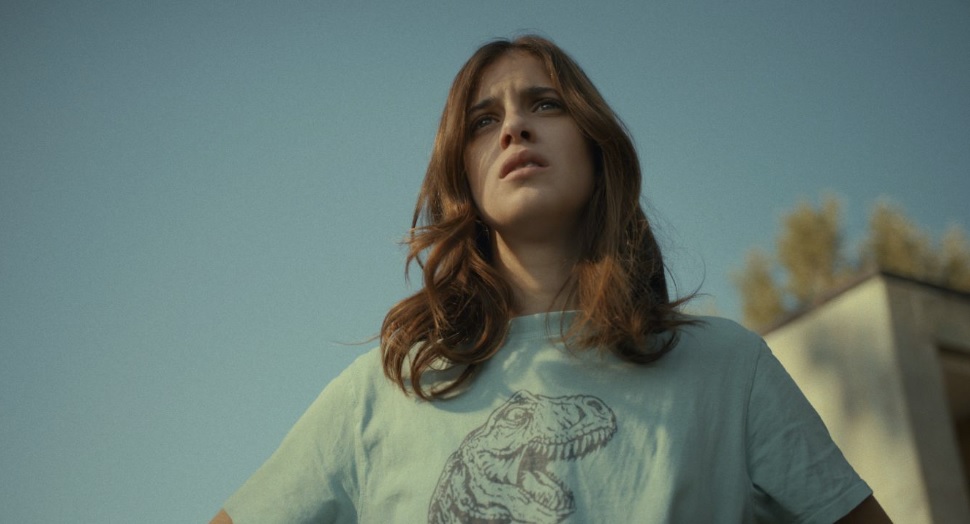Da che si ricorda Amanda, 24 anni, non ha mai avuto amici. É la cosa che desidera di più. Quando scopre che da neonate lei e Rebecca passavano un sacco di tempo insieme, Amanda sceglie la sua nuova missione: convincerla che sono ancora migliori amiche.
Quando ho scritto Amanda non è che avessi delle intenzioni particolari, se non quelle di scrivere una bella storia, che è un po' il tentativo che faccio sempre. Non è che avessi davvero un piano, avevo in testa un personaggio e penso che se tratti con rispetto i personaggi, lo stesso rispetto che hai per le persone in quanto persone, allora non ti devi più preoccupare davvero della storia. E poi non credo che il modo di raccontarla e di scriverla possa essere tanto diverso dal modo di chi la scrive: in questo senso è un sollievo non avere scelta, perché magari non è il modo migliore, ma alla fine è l'unico per sé. Per esempio, ho notato che il film anela spesso alle cose malinconiche, ironiche e sobrie; queste tre insieme, in effetti, sono caratteristiche che ammiro molto.
È chiaro che l'immaginazione abbia dei limiti quando vuole essere rappresentata: la realtà, le proprie capacità. Però non ho mai assecondato questi problemi e ne sono felice.
Non ho un grande rapporto con il tempo né con la geografia, infatti, anche se non è esplicito, pure tutti i personaggi in Amanda sono sempre in anticipo e non hanno senso dell’orientamento. Se posso scegliere, mi sento a mio agio a lavorare con la luce che non si sa bene a che ora sia, e con i non-luoghi. Come riferimento, per me ci sono paesaggi che assomigliano più di altri a paesaggi interiori, o almeno che io riconosco così e preferisco: la brughiera, i posti suburbani del Mid-West, come mi immagino le periferie di Tokyo, dalle foto che ho visto perché in realtà non ci sono mai stata, eccetera. Mi dispiacerebbe non poterli mettere insieme, uno accanto all'altro, solo per rispettare una geografia vera, che tanto non appartiene al mondo del film.
Sceneggiatura
Carolina Cavalli
Fotografia
Lorenzo Levrini
Musica originale
Niccolò Contessa
Suono
Roberto Gambotto Remorino (A.I.T.S.); Alessandro Bonfanti; Alessandro Fusaroli, [Leonardo Lamprati:/professional_item.php?id=2432&c=&p=&q=Leonardo]] (microfonista)
Interpreti
Benedetta Porcaroli (Amanda), Galatea Bellugi (Rebecca), Michele Bravi (Dude), Monica Nappo (Sofia), Margherita Maccapani Missoni (Marina), con la partecipazione straordinaria di Giovanna Mezzogiorno (Viola)
Produttore
Annamaria Morelli e Antonio Celsi , Mario Gianani e Lorenzo Gangarossa, Moreno Zani e Malcom Pagani
Produzione
Elsinore Film, Wildside, Tenderstories, in collaborazione con Charades, I Wonder Pictures
con il sostegno di Film Commission Torino Piemonte -
Piemonte Film Tv Development Fund (giugno 2020); il sostegno allo sviluppo del MiBACT; della Direzione generale Cinema e audiovisivo e con il contributo del POR FESR Piemonte 2014-2020 - Azione III.3c.1.2 - Bando
Piemonte Film TV Fund (2021)
